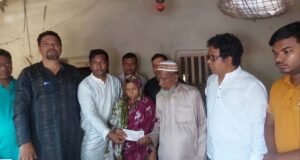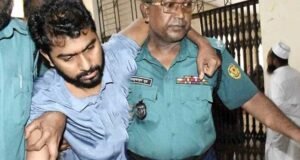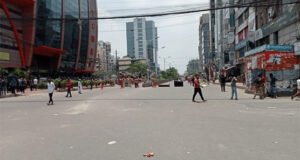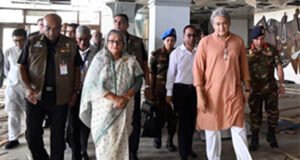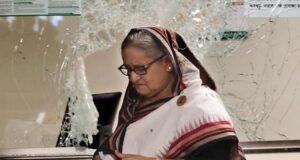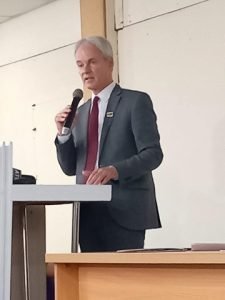
On 22 May members of an European delegation spoke at the conference on recognition of the the 1971 genocide in Bangladesh. It was held at the place where the genocide began, Dhaka University.
The academic consensus that the events which took place during the Bangladesh Liberation War should be seen as genocide is convincing. The facts speak for themselves: The genocide began on 25th of March 1971 with the launch of Operation Searchlight to suppress Bengali calls for self-determination. During the nine-month Bangladesh Liberation War the Pakistan Armed Forces, supported by pro-Pakistani Islamist militias, killed 3 million people and raped between 200.000 and 400.000 Bengali women in a systematic campaign of genocidal rape. 10 million people fled the country and up to 30 million civilians were internally displaced.
Four renowned institutes has come to that conclusion: Genocide Watch, the Lemkin Institute for Genocide Prevention, the International Coalition of Sites of Conscience and the International Association of Genocide Scholars. They call on the international community, and by extension the UN, to recognise the genocide of Bangladesh in 1971. European Fact Finding Mission will call on the Dutch House of Representatives and the House of Commons in the UK to join this plea and to formally declare that there was genocide in Bangladesh.
Academic consensus does not automatically lead to international recognition of genocide. There are many other convincing examples of genocide and mass atrocities that are subject to public debate; both historical, political and legal debate.
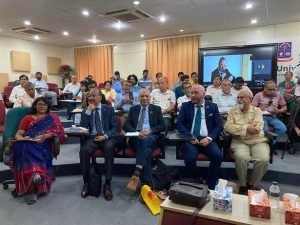
Head of the delegation former Dutch MP Harry van Bommel said it is of great importance and an indeed an absolute necessity to honour the victims of genocide and their descendants through recognition. Recognition also implies that we are able to define which party committed the crime of genocide. This will lead to advocacy efforts seeking reparations. Finally recognition may contribute to the prevention of genocide in the future.
There are important reasons for the Netherlands to recognise the 1971 genocide in Bangladesh. The Netherlands was one of the first countries to recognise the independence of Bangladesh. The Netherlands is host country to the International Court of Justice and the International Criminal Court. Therefore it would suit the Netherlands to be one of the first countries to politically recognise the 1971 genocide.
Another reason for the Netherlands to do so; in the seventies more than 500 war babies, at the time called ‘abandoned children’ were adopted by Dutch families. Many of these children have never received the right information about their origins. They still carry the burden of the 1971 genocide. Recognition to them is personal.

The 1971 Bangladesh genocide occurred at the time of the Cold War between East and West. Although the United States and the international community were very much aware of the atrocities committed by the Pakistan military against the Bengali people, president Nixon continued his support of the Pakistani regime and provided weapons to the Pakistan Armed Forces. Pakistan was seen as a close ally of the US and a gateway to open diplomatic relations with China. At the same time the American president feared the closer relation of India with the Soviet Union. This led the Princeton University professor Gary Bass to conclude that ‘Bangladesh’s experience shows the primacy of international security over justice.’
The Netherlands would not be the first Western country to pay political attention to the genocide of Bangladesh. In October last year, U.S. Congressmen Steve Chabot (Republican) and Ro Khanna (Democrat) submitted proposals for recognition of genocide. In February of the same year, it was proposed in the British Parliament to come to recognition. It would be to the credit of the Netherlands to strengthen its early involvement in the fate of the Bangladeshis with recognition of the genocide.
Other members of the delegation who addressed the conference were Prof Anthonie Holslag, Vrije University Amsterdam, Chris Blackburn, BD Strategy Group, Bikash Chowdhury Barua of Dutch European Bangladesh Forum and Ansar Ahmed Ullah of UK European Bangladesh Forum.
 Weekly Bangla Mirror | Bangla Mirror, Bangladeshi news in UK, bangla mirror news
Weekly Bangla Mirror | Bangla Mirror, Bangladeshi news in UK, bangla mirror news


